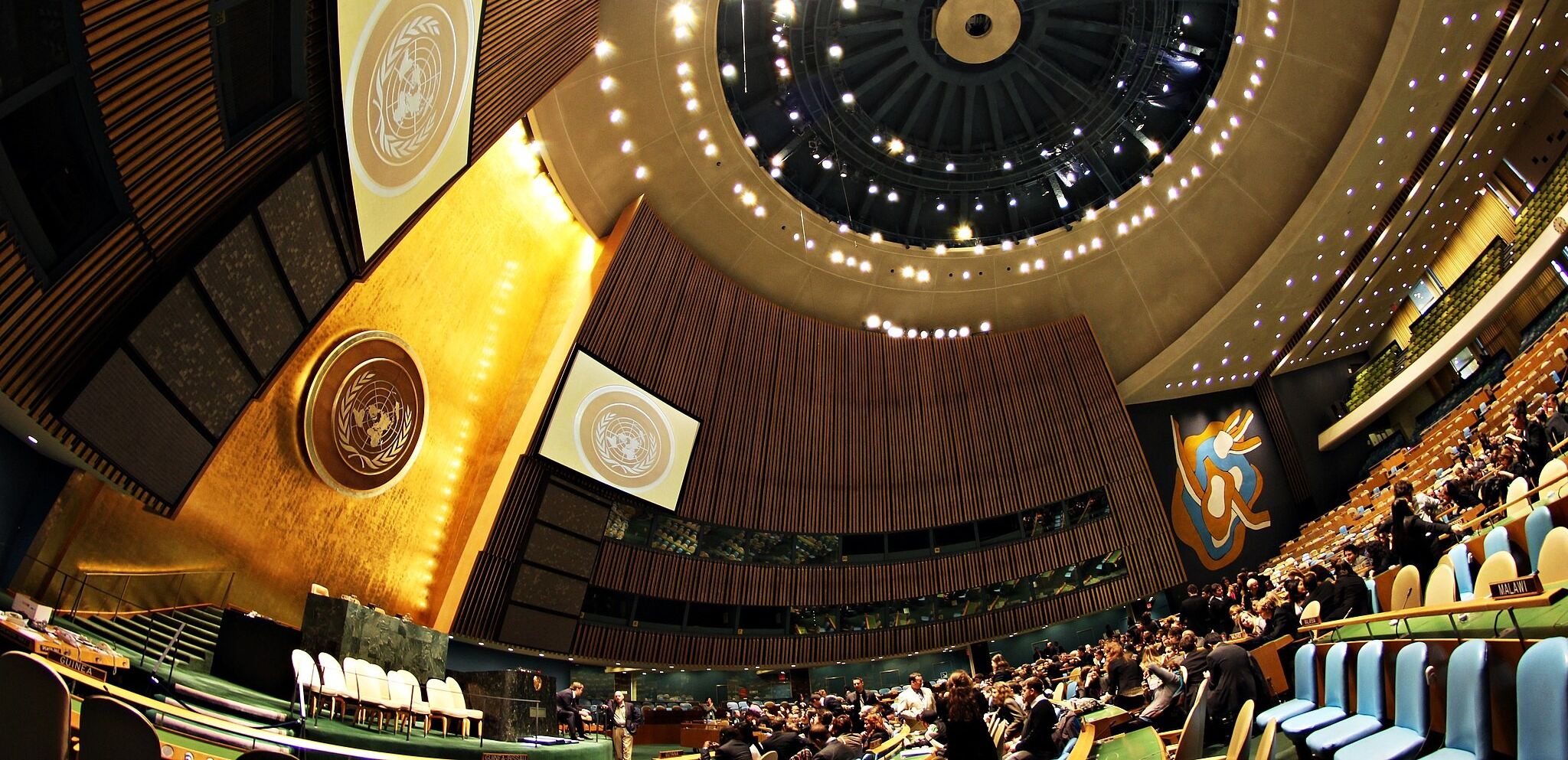On Tuesday, the United Nations General Assembly overwhelmingly adopted a resolution introduced by Egypt and Mauritania and co-sponsored by more than 100 states demanding an "immediate humanitarian ceasefire" in Gaza. The measure won by 153 votes, with only 10 opposed and 23 abstentions.
The resolution was triggered by the UN Secretary-General Guterres’ invocation of Article 99 of the UN Charter citing a likely “complete collapse” of humanitarian services in Gaza. Article 99 enables the Secretary-General “to bring to the attention of the Security Council any matter which in his opinion may threaten the maintenance of international peace and security.”
The UN Security Council’s own resolution calling for a ceasefire failed after the U.S. vetoed it in a 13 to 1 vote on Friday.
The General Assembly’s vote margin on Tuesday was much bigger than the October 27 vote on a resolution calling for a "humanitarian truce leading to a cessation of hostilities" (somewhat weaker language than the latest resolution). That one was adopted with a huge margin of 121 votes in favor and 14 opposed.
Most of the Global South states that had not supported the Oct 27 resolution were in favor this time around. These included India, Cambodia, Philippines, Jamaica, Zambia, Ethiopia, Fiji, and Benin. The shift of India, Philippines, Ethiopia, and Fiji is particularly notable from a geopolitical perspective.
On the flip side, Argentina was one of the very few Global South states that flipped from being in favor to abstaining. This is likely an effect of the recent election of Javier Milei as president. Milei has taken a strongly pro-Israel stance. (Malawi and Equatorial Guinea were other two states who shifted their votes more toward the Israeli and U.S. positions.)
A small set of Global South states maintained their stance against a ceasefire from the last vote, including Burkina Faso, Cameroon, Liberia, South Sudan, Guatemala, Panama, Paraguay, Uruguay, Venezuela, and several Pacific Island countries.
Overall, out of 116 Global South states outside the Greater Middle East (defined as spanning a zone from Morocco to Pakistan), an overwhelming 80% voted for the ceasefire. Only about 20% did not. Of course, the percentage of affirmative votes becomes even more dominant (close to 90%) if we add greater Middle East states to this mix.
Some divides over Hamas that emerged during this process are worth noting. During the October 27 voting process, the United States had introduced an amendment explicitly condemning Hamas. That amendment failed but garnered a respectable tally of 88 votes in favor.
This time around, a similar amendment introduced by the United States “unequivocally” condemned “the heinous terrorist attacks by Hamas” on October 7 and “the taking of hostages.” It garnered 84 votes in favor. About 28% of Global South states outside the Greater Middle East voted with the United States on the amendment. Of these, Chile, Ecuador, Ghana, India, Kenya, Peru, Philippines, and Singapore also backed the ceasefire resolution. Several other key Global South states abstained on the U.S. amendment, including Angola, Brazil, Colombia, DRC, Ethiopia, Mexico, Thailand, and Vietnam.
This indicates that there remains considerable sentiment in the Global South that would like to go on record condemning Hamas and its actions on October 7 as terrorist in nature. It is however more noteworthy that this preference did not prevent almost all of these states from also calling for an immediate ceasefire. Their ceasefire demand was thus unconditional.
Most Global South states have strongly opposed the Israeli war on Gaza and backed a ceasefire for many weeks. But the December 12 vote indicates that sentiment against Israel and the United States is hardening, and now represents a near-consensus among the developing world.
There should be no doubt whatsoever that the United States and Israel stand isolated across Africa, Asia, and Latin America when it comes to Israel’s ongoing bombardments of Gaza. Washington should take note and use its leverage with Israel to stop the civilian bloodshed — which is what this body clearly wants — fast.
- Global South again shows ambivalence on the Ukraine war ›
- US ceasefire veto draws major backlash in Doha ›
- Mapping it: striking US isolation in UN vote - Responsible Statecraft ›
- Pressure on Biden for Gaza ceasefire appears to be working | Responsible Statecraft ›
















